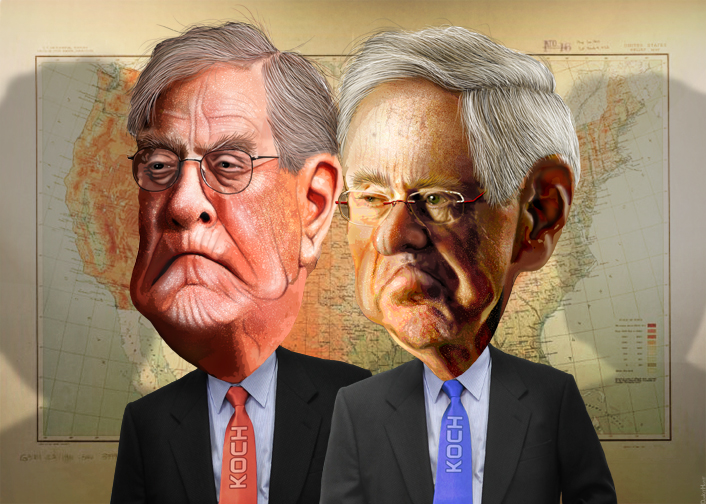I recall my frustration years ago watching U.S. television while an “analyst” from the right-wing Cato Institute spewed blatant lies about Canada’s public health-care system — including that all hospitals in Ontario, having run out of money at the end of the year, had completely shut down for the month of December.
This was back in pre-social media days, making it difficult (beyond yelling at the TV) to immediately challenge such a breathless release of alternative facts.
So it was with some pleasure last week that I watched as a Republican congressman tried to insist that Canadians routinely flock to the U.S. for health care, only to have MSNBC host Ali Velshi stop him dead in his tracks.
“Sir, I grew up in Canada,” Velshi declared. “I live in Canada. My entire family is in Canada. Nobody I know ever came to the United States for health care. I am sure you have a handful of stories about things like that. It is not actually statistically true.”
Whenever Americans start tinkering with their deeply dysfunctional health-care system, we feel the reverberations up here, as right-wing commentators seek to denigrate our system of universal health-care coverage, which they know sets a dangerous example.
With the ruling Republicans now poised to take health-care coverage from 14 million Americans (eventually 24 million) and keep a straight face while insisting this is about increasing their “choice,” it’s worth reminding ourselves just how merciless, cruel (and stupid) so many of the Trump/Republican solutions truly are.
Health care is a particularly stark example, but it is symptomatic of the Republican keenness to fully embrace the private marketplace, even though that means abandoning vast numbers of their fellow citizens by the side of the road.
Americans have always had more of a taste for unbridled capitalism than Canadians, but today’s Republican party is infected by a particularly virulent strain — a strain that has been nurtured with ample funds from a few dozen billionaires, led by Charles and David Koch, who have a combined fortune of $84.5 billion.
The Koch brothers have long been radical libertarians, far to the right of even radical conservatives like Ronald Reagan.
When David Koch tried his hand at politics in 1980, running for vice-president on the Libertarian Party ticket that called for an end to public schools, social security and taxation, he and his running mate won only 1 per cent of the vote in the Reagan landslide.
Undeterred, the Koch brothers set about to push America, particularly the Republican Party, much farther right. Operating mostly behind the scenes, and driven by an abiding hatred of government and anything that smacked of distributing wealth more broadly, the Kochs invested massively over the next few decades in creating a vast network of think-tanks, academic programs, front groups, political action groups and campaigns, lobbyists and politicians, as New Yorker writer Jane Mayer documents in her powerful book Dark Money.
(Indeed, the “analyst” I heard lying about the shutdown of Ontario hospitals was from the Cato Institute, which Charles Koch established in 1974.)
With the rise of Donald Trump, the media has tended to go along with Trump’s suggestion that, unlike other Republican politicians who depend on Koch money, he enjoys a rare independence from the brothers.
Trump’s independence may be overstated; his vice president, Mike Pence, has been a major recipient of Koch money and was Charles Koch’s first choice for president in 2012. Pence has brought Koch operatives into the White House and shows signs of becoming a Dick Cheney-style puppet master. For that matter, the Kochs are only an impeachment away from having their guy running the free world.
The role of Koch money in shaping Republican politics gets surprisingly little media attention. But it helps explain the otherwise baffling behaviour of Republican politicians scrambling to justify stripping health coverage from their constituents and using the savings to pay for $600 billion worth of tax cuts for the rich. Awkward.
Meanwhile, many Republicans in the “freedom caucus,” who’ve been heavily funded by the Kochs, consider the proposed reform too generous to the disadvantaged.
American commentators talk about how “complicated” reforming health care is. True, if you utterly reject the simple solution that works — a Canadian-style public system — it does become awfully complicated devising a solution that pleases the broader American public while also satisfying two radical extremists who together have the world’s largest fortune and a deep aversion to sharing.
Linda McQuaig is a journalist and author. Her book Shooting the Hippo: Death by Deficit and Other Canadian Myths was among the books selected by the Literary Review of Canada as the “25 most influential Canadian books of the past 25 years.” This column originally appeared in the Toronto Star.
Image: DonkeyHotey/flickr




